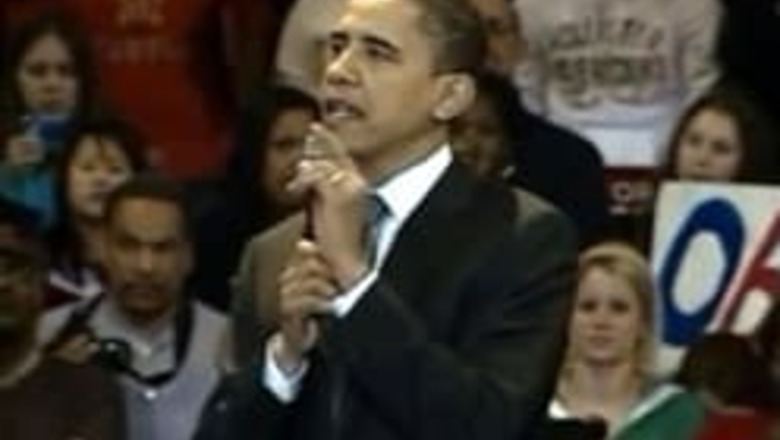
views
Chicago: The multiple terror attacks on Mumbai could push US President-elect Barack Obama administration to sharpen his focus on the Kashmir issue.
The attacks are being viewed by some in the transition team here as Obama's first major national security challenge that could draw him into the Kashmir dispute sooner than he might like.
Although there is no direct link established between the terrorists operating in Kashmir with those who carried out the Mumbai attacks, a case may be made that eventually all jehadi groups are bound by a common Islamist philosophy.
To that extent the Deccan Mujahedeen, a likely offshoot of the more organised Indian Mujahedeen, may well share the broader vision of those operating in Kashmir.
Part of the reason why the Mumbai attacks could more sharply define the new Kashmir approach is because in the final analysis Kashmir (including the part under Pakistani control) is seen as a fount of the rising Islamist terror in India. Of course, factors such as the 2002 mass killings of Muslims in Gujarat do fuel some of the sense of extreme disenchantment within the Muslim community. However, the larger connection between the disparate groups will always remain a feeling of pan-Islamism.
Perhaps the clearest indication of a more pro-active Kashmir approach under Obama has come from Bruce Reidel, a former CIA officer and adviser to three US presidents on South Asia and the Middle East who has been appointed by the new president as his Pakistan adviser.
In an interview with the influential think tank Council on Foreign Relations Reidel was quoted as saying as recently as September: "There's another place where I feel creative American diplomacy could be helpful. We ought to try to encourage a long-term settlement between India and Pakistan of the Kashmir dispute, based again on the principle that the existing Line of Control ought to become an international border with some special status reserved for Kashmiris."
"We can't expect Pakistan to behave like a normal state, unless it has normal borders. And we can't expect Pakistan to behave the way we would like it to while it's obsessed and fixated on its neighbor and the problem in Kashmir. The problem in Kashmir has been in the doldrums for the past several years. It is now starting to boil really quickly, and when Kashmir boils, the result is Indian-Pakistani tensions that can produce war. We've seen that over and over again," he said.
With Prime Minister Manmohan Singh pointing at external links of the Mumbai attackers, it is not lost on experts in the US that he could be talking of groups based in Pakistan. If that is indeed the case the brazen Mumbai attacks could yet work up new tensions with Pakistan. Since Obama is committed to making Afghanistan and Pakistan his administration's foreign policy as well national security priority, it is only logical that he would have to pay particular attention to Kashmir.
While the chatter over Obama proposing to appoint a special envoy on Kashmir has died down in recent weeks, it is clear that the Mumbai attacks would bring back a whole lot of options on the table. At the very least they would force Obama and his South Asia advisers to reassess the situation on the ground.
Those who know the issue of terror in India understand that the mushrooming jehadi outfits use the justification of the community having been wronged in India as much as it having been wronged globally.
Such outfits no longer make any distinction between what they consider wrongs being done to Indian Muslims and those being done to Muslims worldwide. This fusion of global and domestic grievance among the jehadi groups, perceived or real, could make it hard for the Obama administration to tailor their Kashmir policy.
Nobody knows who Deccan Mujahedeen are or what their objectives are or whether they feel any affinity towards the Kashmiri separatists. But it may be safe to assume that all these groups morph into each other when it comes to what they have framed in their minds as Islam versus the world conflict. It is in this nebulousness that the Obama administration will have to pitch its Kashmir approach in the framework of its national security policy on South Asia, in the light of threat perceptions emanating from Afghanistan and Pakistan.




















Comments
0 comment